#lansquenets
Text
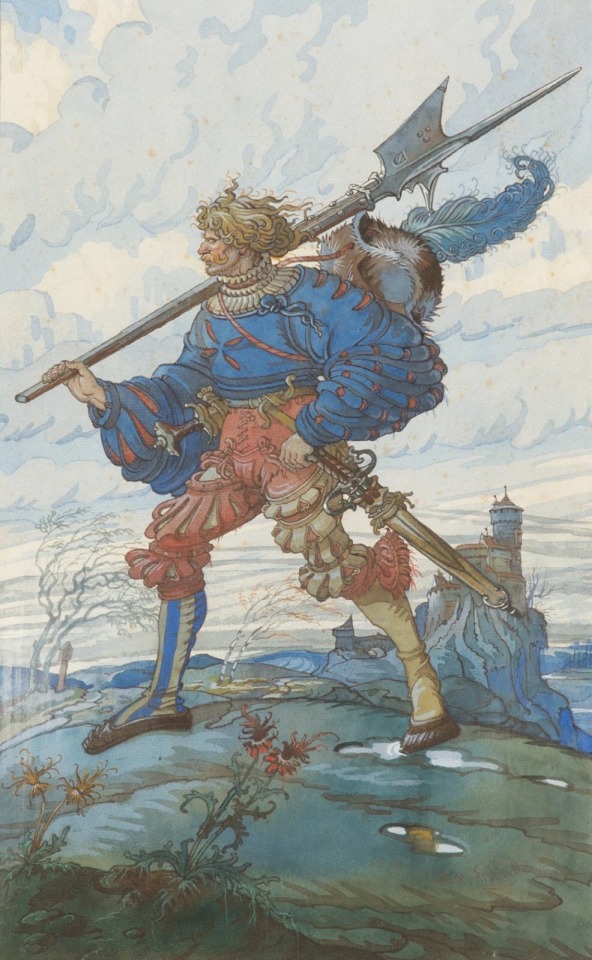
Landsknecht by Léo Schnug
#léo schnug#landsknecht#lansquenet#art#history#alsace#strasbourg#halberd#europe#european#lansquenets#landsknechts#renaissance#mercenary#mercenaries#soldier#soldiers#german#germanic#pike and shot#pikemen#middle ages
346 notes
·
View notes
Text

Brain to Soup
#medieval#fantasy#medieval fantasy#15th century#drawning#digital art#artwork#tw blood#tw getting your head mauled in by a war hammer#armor#bascinet#warhammer#great bascinet#reiter#knight#idv mercenary#battle#combat#landsknecht#lansquenet#landscape
17 notes
·
View notes
Text
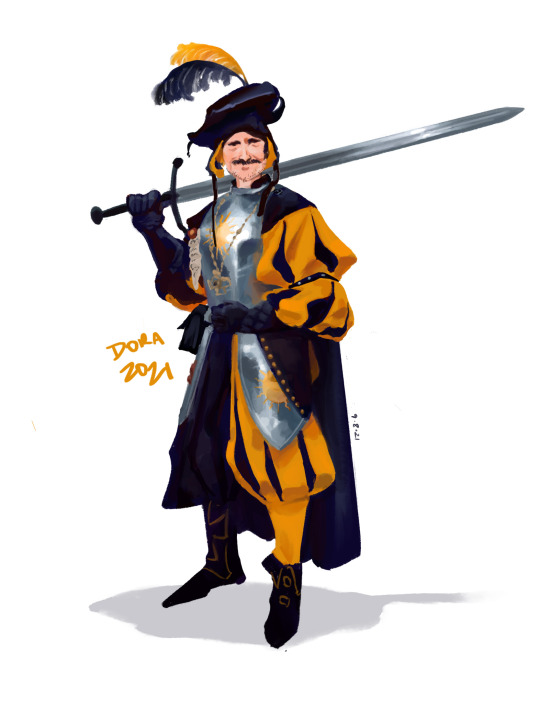
did this back in 2021 and got the freaking sword position wrong and just got around to fixing it so it's actually resting on this dude's shoulder instead of floating in the air
Based on a picture of some LARPers
Comms open!
#art#artists on tumblr#procreate#sketch#doodle#mine#my art#lansquenete#landsknecht#knight#armor#medieval#middle ages#historical
23 notes
·
View notes
Text

#pentiment#idk why but this always takes me out.#i always wait patiently for caspar to make the torch but...in my heart andreas gets huffy and blunders thru the cistern in the dark#for like 10 straight minutes before bothering to turn around (caspar has been waiting very politely torch in hand)#just in general i really like a bad-tempered open-wound pathetic rapscallion andreas. so funny.#he's losing his mind to grief. a bar fight broke out while he was mourning [redacted] and his first impulse was to start punching.#he got floored by a landsknecht and is still sporting a black eye.#he once jumped out from behind a cupboard during a forensic autopsy and headbutted a doctor in the face.#he cheats at lansquenet and still loses.#i didn't say his name but he popped into your head didn't he <3
132 notes
·
View notes
Text
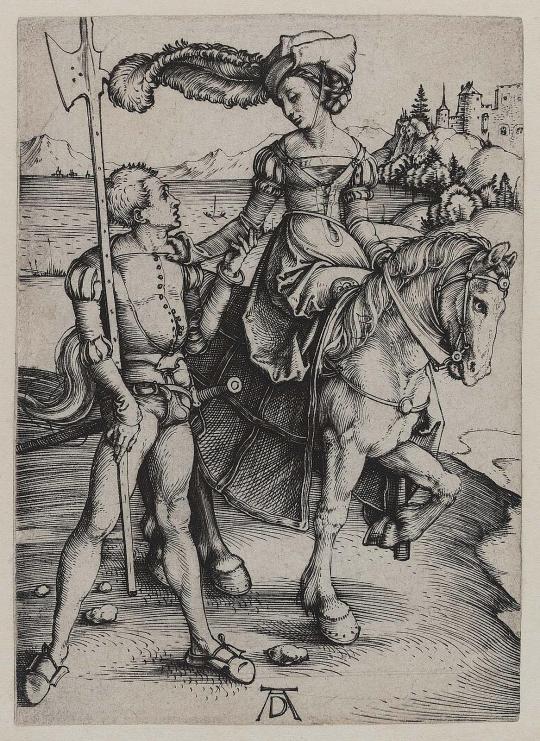
▪︎ Lady on Horseback and Lansquenet.
Artist: Albrecht Dürer (German, 1471-1528)
Date: 1496-1497
Medium: Engraving
#15th century#15th century art#engraving#art#middle ages#medieval#lady on Horseback#horse#Lansquenet#albrecht dürer#1496#1497
146 notes
·
View notes
Text
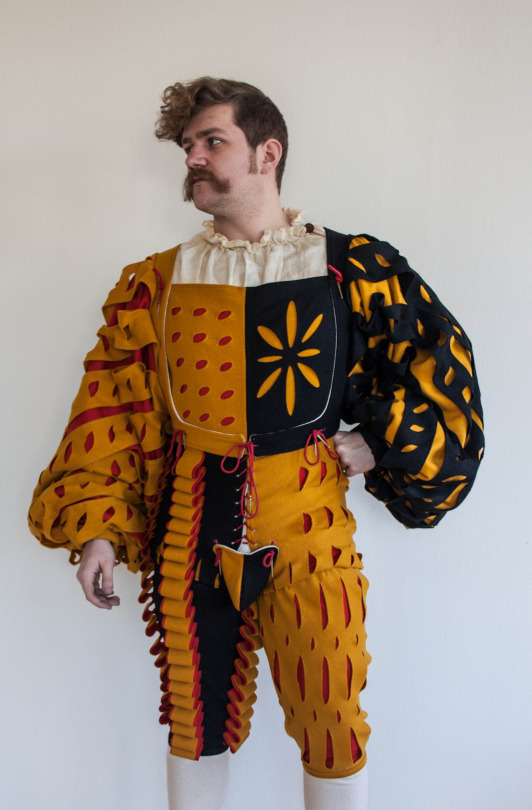
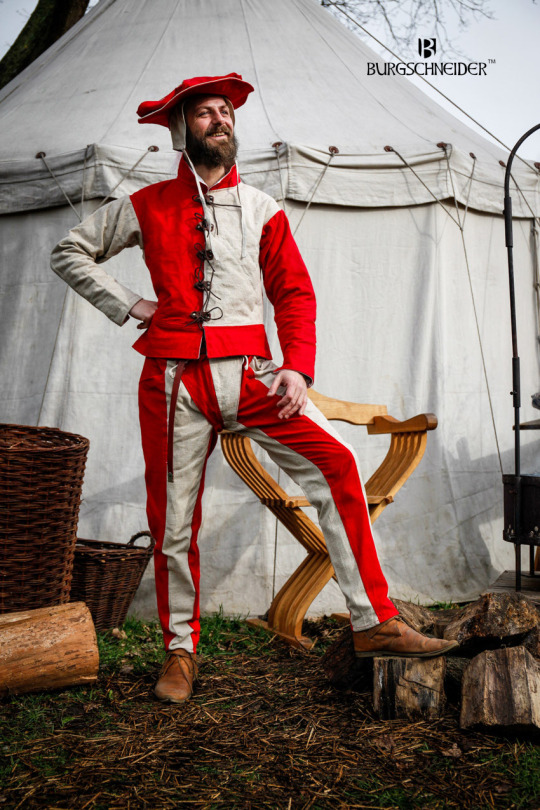
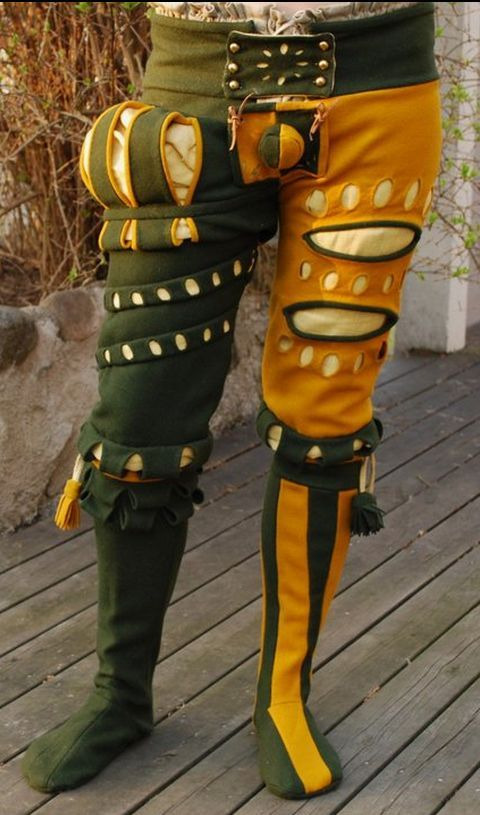
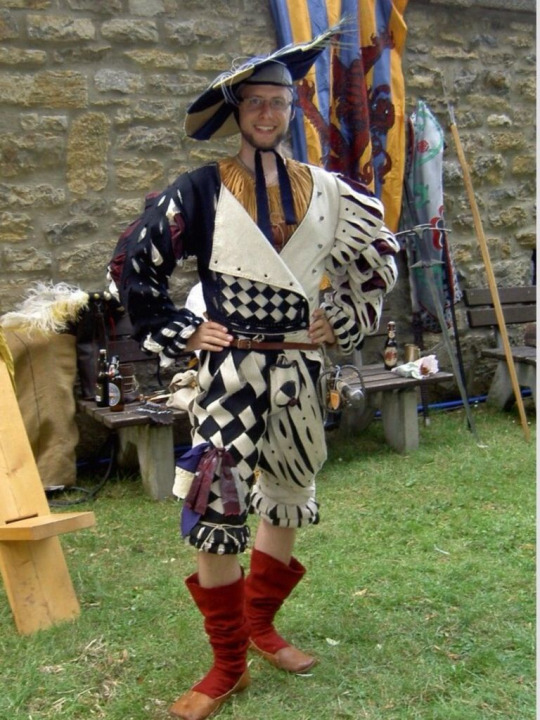

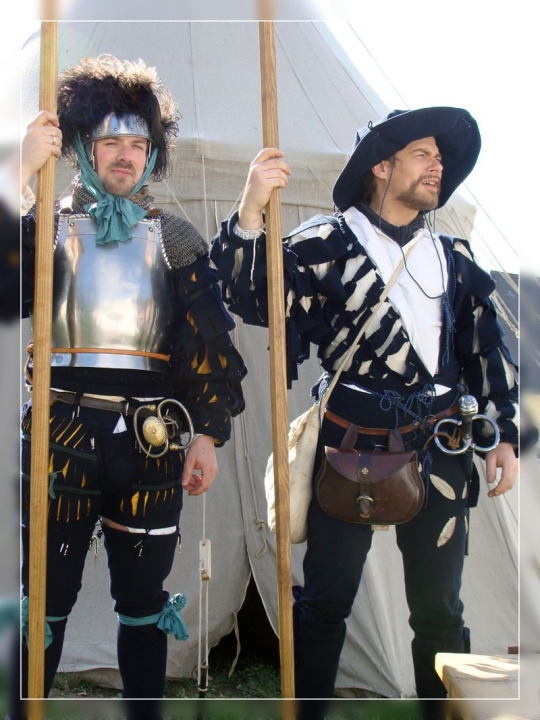


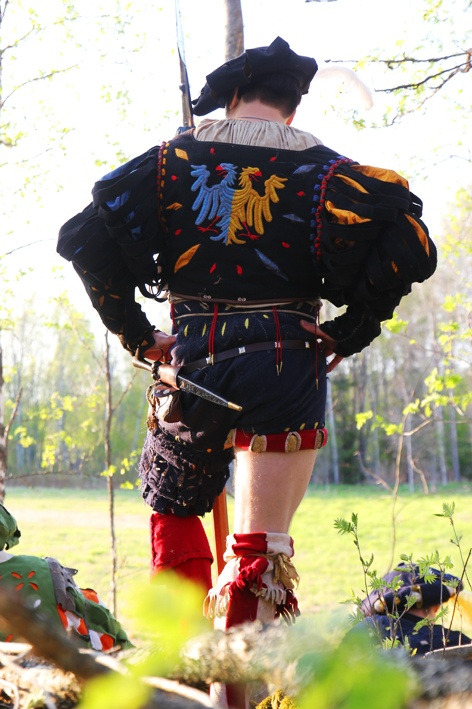
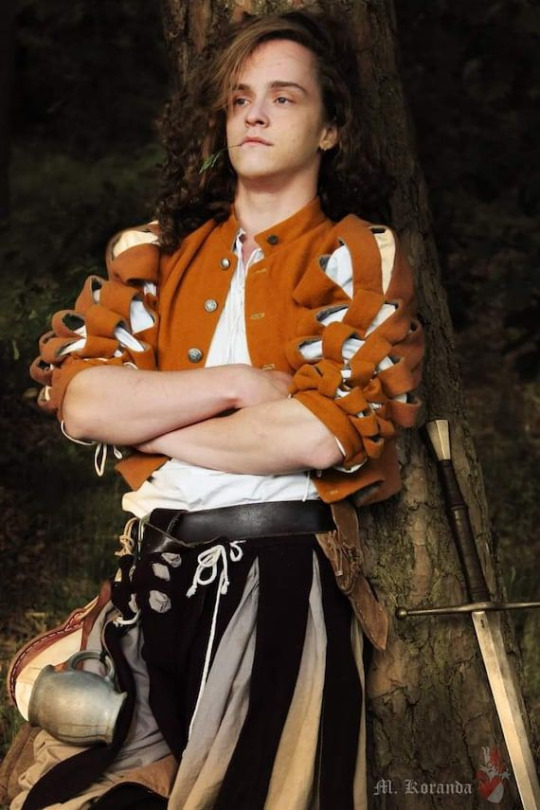
fashion peaked there. it has all been downhill since.
2 notes
·
View notes
Text
the worst part about pentiment is that you can't play lansquenet forever
#i looove simple card games like that i kept restarting before beating even though i had to replay#the entire bar scene multiple times#i played the game not long after it out and i keep wanting to go vack specifically for lansquenet
2 notes
·
View notes
Text
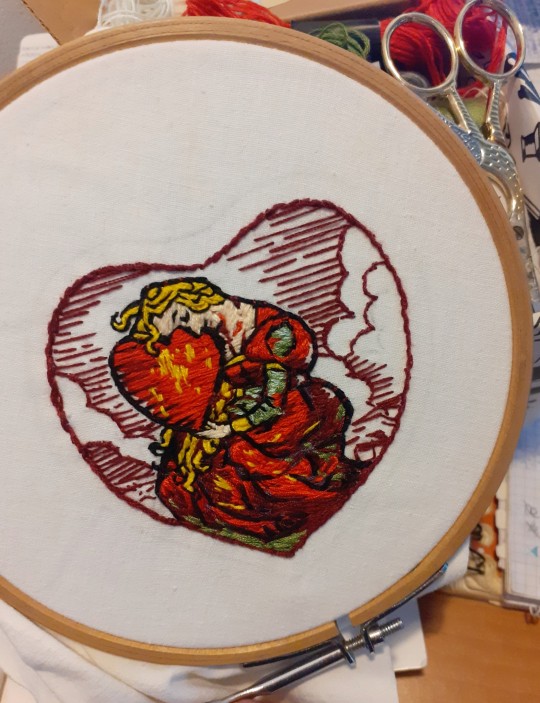

Lady of Hearts from the Lansquenet minigame in Pentiment ❤
My second Pentiment themed embroidery~ just in time for Valentines day
#again could i have done it better yeah. do i plan at all before i make these no#so i'm satisfied :)#pentiment#obsidian entertainment#embroidery#beesart#fiber arts
333 notes
·
View notes
Text
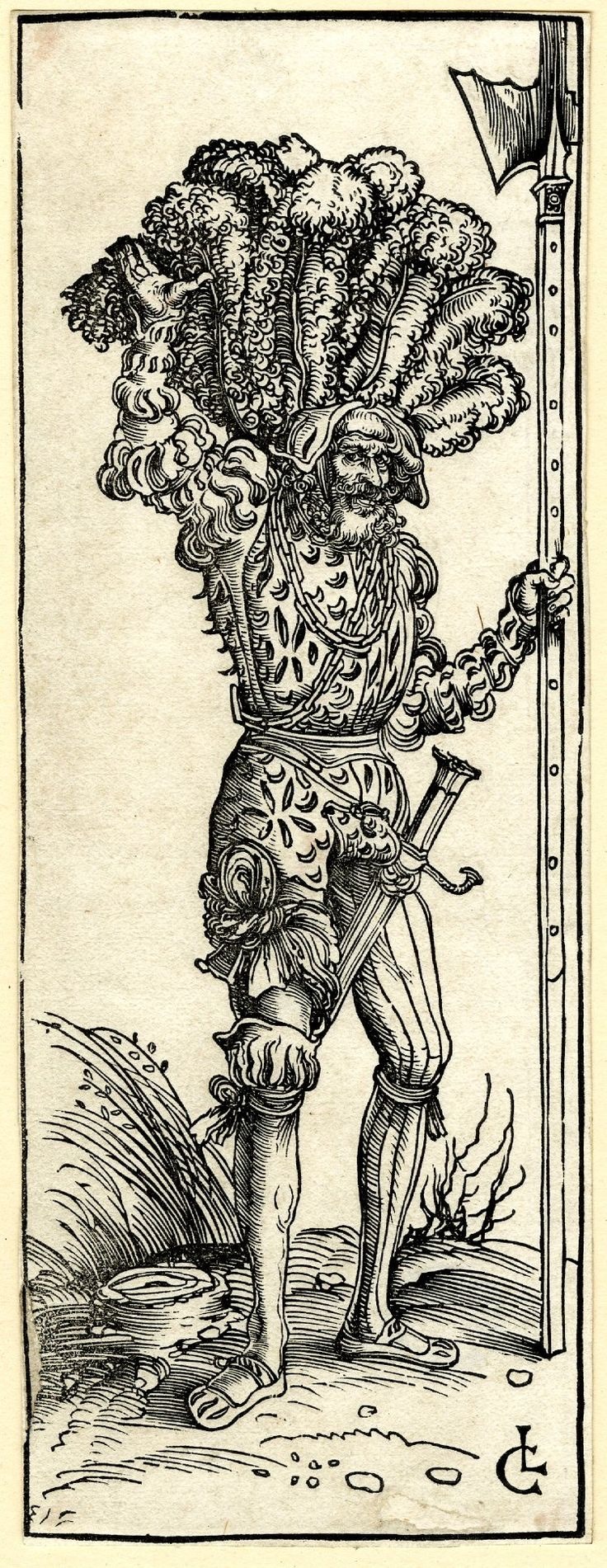
Landsknecht with Halberd by Lucas Cranach the Elder
#landsknecht#lansquenet#footsoldier#halberd#foot soldier#art#lucas cranach the elder#landsknechts#lansquenets#mercenaries#mercenary#foot soldiers#german#germany#europe#european#history#renaissance#warfare#war#footsoldiers#landsknechte#halberdman#soldier#soldiers
210 notes
·
View notes
Text
So I finally finished Pentiment, I laughed, I cried and I played a truly obscene amount of Lansquenet
No spoilers, but I really liked how the game communicated its themes, and also managed to teach the 16th century jargon without feeling obtrusive or out of character. just real excellent writing all round!
Also, absolute 10/10 animal designs. Love those little guys

68 notes
·
View notes
Text
while we’re on the subject of samurai, a comparison that occurred to me:
wikipedia, kabukimono:
Kabukimono (傾奇者 (カブキもの)) or hatamoto yakko (旗本奴) were gangs of samurai in feudal Japan.[1] First appearing in the Azuchi-Momoyama period (between the end of the Muromachi period in 1573 and the beginning of the Edo period in 1603) as the turbulent Sengoku period drew to a close, kabukimono were either rōnin, wandering samurai, or men who had once worked for samurai families - who, during times of peace, formed street gangs.
(...)
Kabukimono would often dress in flamboyant clothing, disregarding traditional colours such as light yellow and dark blue, often accessorised by wearing haori jackets with lead weights in the hem, velvet lapels, wide obi belts and even women's clothes. Exoticism was characteristic and included items such as European clothing, Chinese hats, jinbaori vests made from Persian rugs.[3][4] Kabukimono also often had uncommon hairstyles and facial hair, either styled up in various fashions, or left to grow long. Their katana would often have fancy hilts, large or square tsuba, red scabbards and were usually longer than normal length. Some kabukimono even used extremely long kiseru pipes as weapons.
wikipedia, landsknecht:
The Landsknechte (singular: Landsknecht, pronounced [ˈlantsknɛçt]), also rendered as Landsknechts or Lansquenets, were Germanic mercenaries used in pike and shot formations during the early modern period. Consisting predominantly of pikemen and supporting foot soldiers, their front line was formed by Doppelsöldner ("double-pay men") renowned for their use of Zweihänder and arquebus. Originally organized by Emperor Maximilian I and Georg von Frundsberg, they formed the bulk of the Holy Roman Empire's Imperial Army from the late 1400s to the early 1600s, fighting in the Habsburg-Valois wars, the Habsburg-Ottoman wars, and the European wars of religion.
some article (this information was removed from the wiki page for plagiarism!):
Indeed, when Holy Roman Emperor Maximilian I formed the first Landsknecht company in 1487, he intentionally exempted them from the harsh sumptuary laws of the time. Rather, because their lives tended to be “brutish and short,” Maximilian urged them to wear distinctively outlandish garb. Not only did slashed sleeves and bold colors unify the troops, Landsknecht attire also created an ostentatious and recognizable force fighting in the Emperor’s name. Members of lower nobility with minimal prospects and even curious artists like the Swiss Urs Graf joined up, forming a powerful and agile army. But not everyone was impressed with their bravado and posturing. As one writer remarked about Landsknechte in 1536, “Blaspheming, whoring, gambling, murdering, burning, robbing, [and] widow-making … is their common handiwork and greatest amusement.”
Sort of fascinated by these two completely unrelated instances of short-lived mercenaries in a period of social breakdown and general violence developing a reputation for flamboyant dress. Wonder if there are any other examples?
118 notes
·
View notes
Text

"Nos voies sont diverses, chacun porte en son cœur une autre boussole. Pour chacun, vivre veut dire autre chose, pour l'un le chant du coq au matin clair, pour l'autre l'étendue qui dort au midi, pour un troisième les lueurs qui passent dans les brumes du soir. Pour le lansquenet, c'était le nuage orageux qui couvre au loin la nuit, la tension qui règne au-dessus des abîmes."
Ernst Jünger, La guerre comme expérience intérieure (1922)
4 notes
·
View notes
Text
Meeting Comte de Reynaud on holiday

Although he is the mayor of lansquenet, he was urged to take a break by Caroline. He was so wound up for so long that it would be ideal for him to travel and loosen up.
Visiting Bruges was on your bucket list for so long. It was one of the best places to visit in Belgium.
You ended up walking into someone when visiting the Basilica of the Holy Blood. Little did you know that it was the Comte.
You apologize and it ends up turning into small talk. Mainly about the weather and the location, but his smile urged you to stay.
So you ended up accompanying him around the touristy part of Bruges.
Sampling chocolates, viewing churches, and admiring the scenery. It's nice and comfortable.
After a while the conversations get more personal and you start to talk about your goals land how your life is currently going.
You find that the Comte leads a long legacy that he was meant to bear his title with pride and also continue it.
However, by how restrained he talked about his duties. he's essentially being buried alive by upholding the expectations and the heavy workload.
Not to mention, his previous wife had left him to experience the fruits and labor of the world by herself.
Which in turn makes the Comte overwhelmed and the worst kind go chaotic blend of being sexually repressed and frustrated.
You on the other hand, have been roaming world without knowing who you want to be. You've been burned badly by your past partners and you feedlots.
A match made in heaven. (or hell depending on how you feel about it)
Regardless, the feeling are there and very strong. It's mutual too, The Comte -whom you soon come to find out prefers you to call him Paul- is a lot softer towards you and more gentle.
However, he always carries an air of professionalism. As if the very people that are in his town are there, silently watching and waiting for him to subdue to comfort.
You both know that a fling with harm yourselves more than what you want, and giving in to each other is far too great of a risk despite what your hearts yearn for.
So, you both start to put the relationship you both have to a test. You spend the rest of your time with Paul, and it's lovely, as expected.
The man is a huge gentleman and sweetheart. It makes you wonder why his first wife had left him so easily.
The trip comes and goes and you exchange addresses to be pen pals over the coming months. He had a life to return to and you still have to find yours.
As time does, it passes on and you start to pick up the shards of your shattered life with the guidance of Paul.
Then you both soon find you that he and you are two sides of the same coin. Lost, looking for someone when the lives you both uphold are complicated. As all lives are.
So, you take the greatest risk of all. Moving to the little French town and start a life there. A life potentially with Paul.
And when he found out, he knew it was time.
Time to stop hiding in his past. Time to stop living under his legacy's shadow.
You both came into the light of your own lives and bask within its warm rays.
You hold hands in the town square as you talk to him about your future together.
5 notes
·
View notes
Text
Realizing a lot of people probably aren't aware of a bit of dialogue I loved in Pentiment because Steam says the percentage of players who've managed to get the achievement for winning everybody else's money at Lansquenet is pretty small, so I need you all to know that if you do, Caspar responds "Wow, Master Andreas! You must be the best card player in the whole world!!" :0
(I can't remember the exact dialogue options in response, but I believe I picked one along the lines of "Well that's certainly not true, but thank you, Caspar.")
#literally the most earnest young man ever. i love him#AND THEN IT COUNTS AGAINST YOU FOR THE ONE CHECK LATER. YOU KNOW THE ONE#pentiment giveth and pentiment taketh away......#anyways yes i'm a very competitive person and absolutely had to win at cards#presumably this was true of our version of andreas too#pentiment tag
21 notes
·
View notes
Note
You know any French swords? For a… research project. yeah
And at this very moment, I felt an unspeakable regret for not picking history as a major lol
I’ll be honest I don’t know much about this subject and I’m pretty sure you’ve found more knowledge with your research than I’ve had or looked up kdnjbnjgb- But I still have some thoughts on the subject so I’m going to share them anyway :
Swords are an important part of the French gentleman aesthetic ! We’re mostly talking 17th century here, but it kept going until at least the 18th/start of the 19th. At this time, a gentleman had to know how to use a sword, how to ride a horse and how to dance (Layton you dork). They usually did fencing with swords like the fleuret. (Not a French sword tho)
Adding to that last point, most of the swords actually used by the French were not created by them : I’m thinking about the fleuret, the rapière, the lansquenet... I think there may be one sword that is MAYBE French (big emphasis on the maybe), and that would be the canne-épée ? It is a weapon that got very popular in France after the French Revolution (19th century onward, so closer to the period we’re interested about !!). Basically the new government forbad people from casually wearing swords, so instead people would use this regular cane with a sword hidden inside. Like all other swords, the canne-épée was used either by aristocrats/rich people or by respectable people (gentlemen, I think some important artists did too because there WAS that one instance of famous French poet Rimbaud swearing at a guy before attacking him with his sword lkdfgnjldfn)
Swords were used for wars, for fencing and for duels. I’m developing the duel part because I know media loves to share a thousands and one version of them : someone offends you/your honor, you ask for a duel (+ you specify which type : to death or not), they get to choose the weapons (either sword or gun), and once you’ve agreed that everyone is physically abled to fight you do it in front of your witness.
Related to that last point, duels (and swords) were usually an aristocrat thing until the French Revolution : after that, it became more of a thing in political and journalistic spheres (wink wink). Of course there are many people who disapproved of duels and saw them as barbaric (the Church especially hated them), but still they remained for a long time. The last duel in France was in the late 1960s !
#Crazy to think that in 1967 those two senators just went and did a sword fight#Like. Awesome but also you good ??#Anyway I 100% think Léton would/should have a canne-épée it is the best thing ever <3#And I feel like Clovis would love the duel thingy khbjgkdk#(He probably wouldn't do it because he's a loser and I don't think you can just sword fight/gun fight the head of the country)#(Wait is Guillaume Faucon prime minister or president ?)#professeur layton#professeur layton et le destin perdu#professeur layton et le secret des catacombes#ask#That was very fun thank you so much !!!!
4 notes
·
View notes
Text
i got so mad at pentiment for only letting me play the card game once i the ant oh i haven't done that in a while. I Want to play lansquenet forever
7 notes
·
View notes